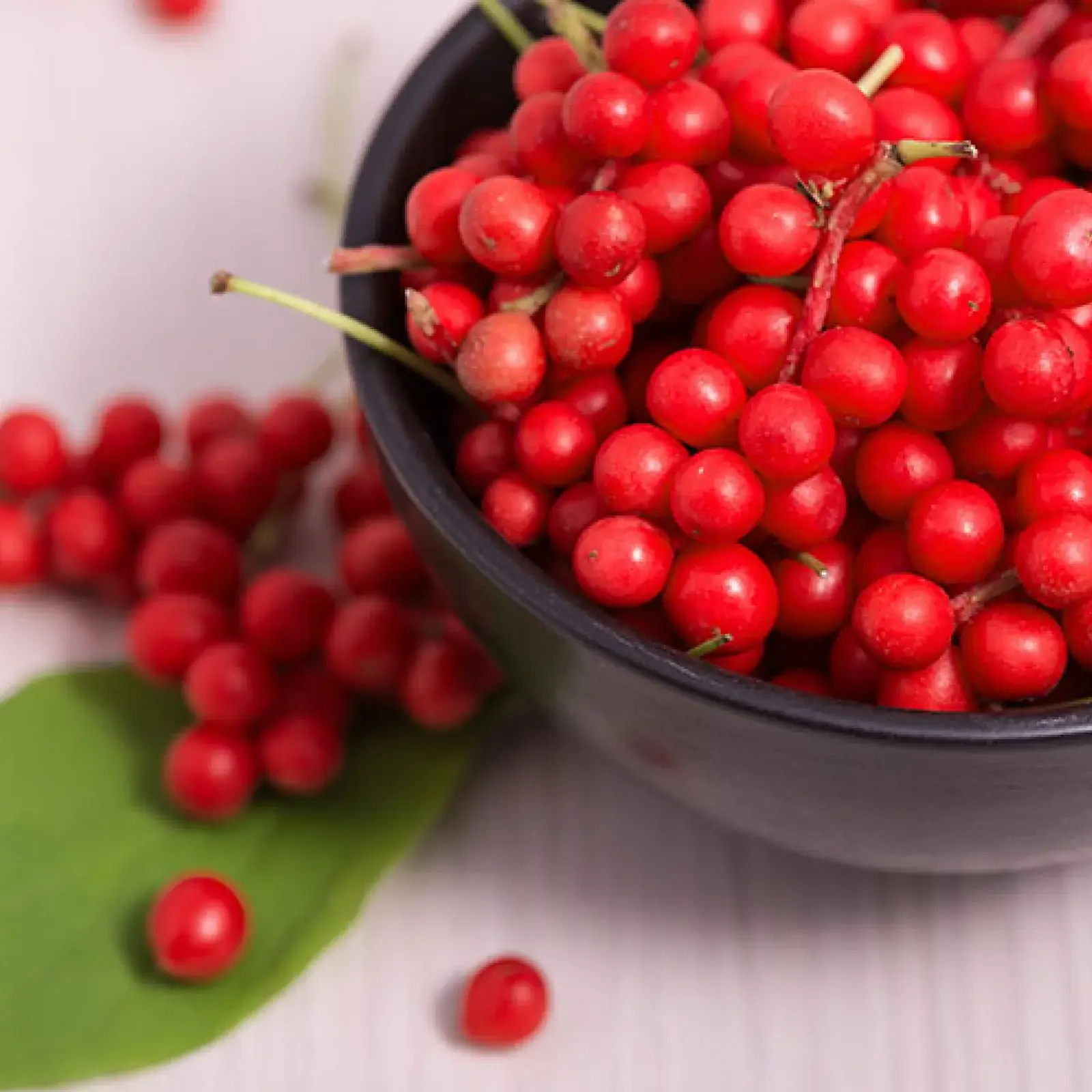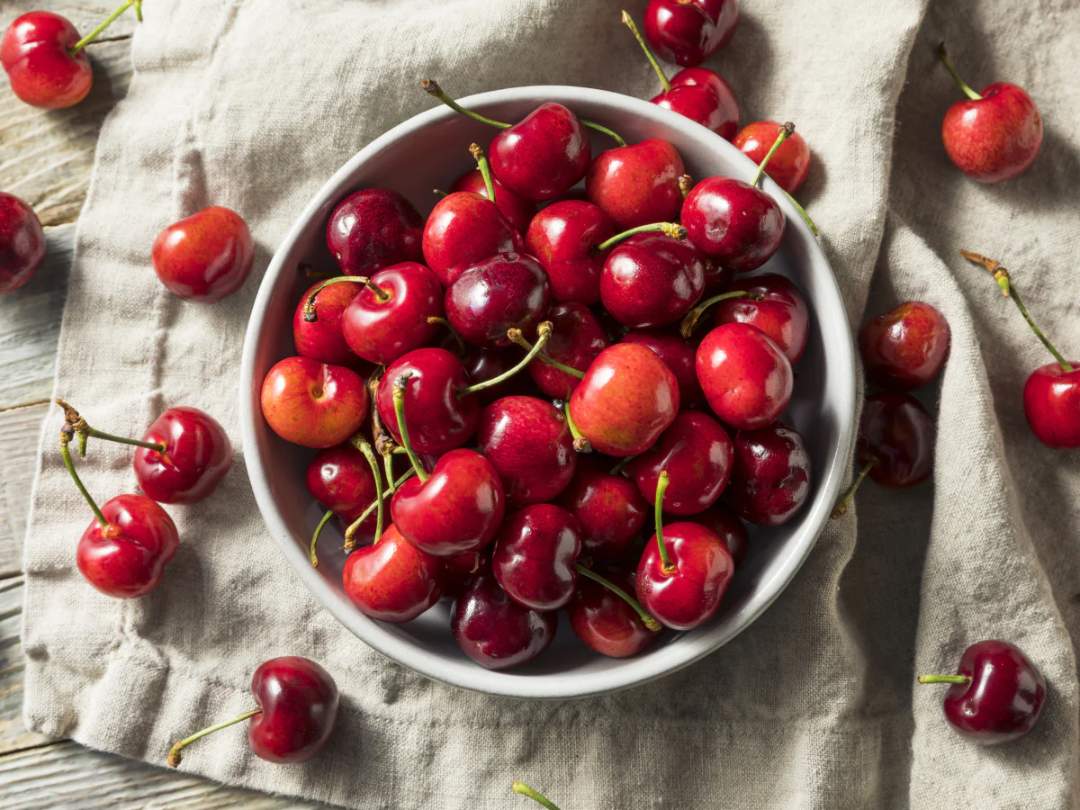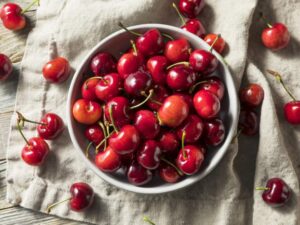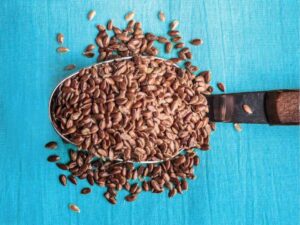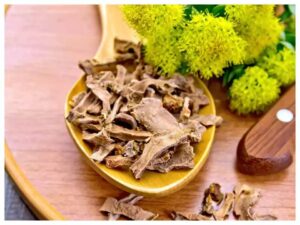The Ancient History of Schisandra
Schisandra is a plant species that is native to China, Russia, and Korea. It has been used for thousands of years for its medicinal properties, and it was first discovered and documented by ancient Chinese herbalists.
Schisandra was first mentioned in the Chinese medical text “Shen Nong Ben Cao Jing,” which was written more than 2,000 years ago. In this text, it was described as a remedy for various ailments, including coughs, asthma, insomnia, and fatigue. It was also believed to have properties that could help increase energy and improve mental clarity.
Culinary and Medicinal Properties
Schisandra is a plant that produces a small, red fruit that is rich in antioxidants, vitamins, and minerals. The fruit is often used in cooking to add flavor and nutrition to dishes, and it is also dried and made into teas, tinctures, and other traditional remedies.
In addition to its culinary and medicinal uses, Schisandra is also prized for its beauty-enhancing properties. It was traditionally used to improve skin health, reduce the appearance of aging, and support the body’s natural defenses against environmental toxins.
Modern Research and Discovery
Despite its long history of use, Schisandra was not well-known outside of Asia until the 20th century. In the 1970s and 1980s, scientists began conducting research on the plant and its potential health benefits, and they discovered that it contains compounds that can help protect the liver, reduce inflammation, and improve heart health.
Since then, Schisandra has been the subject of numerous clinical trials, and it has been found to have a wide range of health benefits, including improved cognitive function, reduced stress and anxiety, and improved sleep quality.

Benefits of Schisandra for Health
Schisandra and Stress
Stress is a common condition that affects millions of people worldwide. It is characterized by feelings of tension, worry, and irritability. While there are many medications available to treat stress, some people prefer natural remedies. Schisandra is one such remedy that has been shown to be effective in reducing stress.
Schisandra contains compounds that act on the hypothalamic-pituitary-adrenal (HPA) axis, which is the body’s stress response system. Schisandra helps to regulate the HPA axis and reduce the release of stress hormones, such as cortisol. When cortisol levels are high, stress can be heightened. Schisandra helps to reduce cortisol levels, which in turn reduces stress.
Several studies have investigated the effectiveness of schisandra in reducing stress. A 2012 study published in the Journal of Medicinal Food found that schisandra was effective in reducing stress and improving cognitive function in humans. Another study published in the Journal of Ethnopharmacology in 2014 found that schisandra was effective in reducing stress and improving immune function in rats. Overall, these studies suggest that schisandra can be an effective natural remedy for stress.
Schisandra and Liver Health
The liver is a vital organ that is responsible for filtering toxins from the body. When the liver is not functioning properly, toxins can build up in the body, leading to a variety of health problems. While there are many medications available to improve liver health, some people prefer natural remedies. Schisandra is one such remedy that has been shown to be effective in improving liver health.
Schisandra contains compounds that act on the liver and promote detoxification. Schisandra helps to improve liver function and reduce inflammation in the liver. When the liver is functioning properly, toxins can be effectively filtered from the body.
Several studies have investigated the effectiveness of schisandra in improving liver health. A 2013 study published in the Journal of Medicinal Food found that schisandra was effective in reducing liver damage in rats with liver injury. Another study published in the World Journal of Gastroenterology in 2010 found that schisandra was effective in improving liver function in patients with chronic hepatitis. Overall, these studies suggest that schisandra can be an effective natural remedy for liver health.
Schisandra and Immune Function
The immune system is a complex network of cells and tissues that protect the body against infection and disease. When the immune system is weakened, the body is more susceptible to illness. While there are many medications available to improve immune function, some people prefer natural remedies. Schisandra is one such remedy that has been shown to be effective in improving immune function.
Schisandra contains compounds that act on the immune system and promote immune function. Schisandra helps to increase the production of immune cells, such as T cells and natural killer cells, which help to fight infection and disease. Schisandra also contains compounds that can reduce inflammation in the body, which can improve immune function.
Several studies have investigated the effectiveness of schisandra in improving immune function. A 2015 study published in the Journal of Medicinal Food found that schisandra was effective in improving immune function in humans. Another study published in the Journal of Ethnopharmacology in 2014 found that schisandra was effective in improving immune function and reducing inflammation in rats. Overall, these studies suggest that schisandra can be an effective natural remedy for immune function.
Schisandra and Cognitive Function
Cognitive function refers to the mental processes that enable us to think, reason, and remember. As we age, cognitive function can decline, leading to problems with memory and thinking. While there are many medications available to improve cognitive function, some people prefer natural remedies. Schisandra is one such remedy that has been shown to be effective in improving cognitive function.
Schisandra contains compounds that can improve blood flow to the brain. Improved blood flow can help to nourish brain cells and improve cognitive function. Schisandra also contains compounds that can reduce inflammation in the brain, which can improve cognitive function.
Several studies have investigated the effectiveness of schisandra in improving cognitive function. A 2013 study published in the Journal of Ethnopharmacology found that schisandra was effective in improving memory and cognitive function in rats. Another study published in the journal Phytomedicine in 2010 found that schisandra was effective in improving cognitive function in humans. Overall, these studies suggest that schisandra can be an effective natural remedy for cognitive decline.
Schisandra and Skin Health
The skin is the largest organ of the body and is responsible for protecting the body against the environment. When the skin is not functioning properly, it can lead to a variety of skin problems, such as acne, eczema, and psoriasis. While there are many medications available to improve skin health, some people prefer natural remedies. Schisandra is one such remedy that has been shown to be effective in improving skin health.
Schisandra contains compounds that can improve blood flow to the skin. Improved blood flow can help to nourish skin cells and improve skin health. Schisandra also contains compounds that can reduce inflammation in the skin, which can improve skin health.
Several studies have investigated the effectiveness of schisandra in improving skin health. A 2017 study published in the journal BioMed Research International found that schisandra was effective in reducing inflammation and improving skin health in rats. Another study published in the Journal of Investigative Dermatology in 2014 found that schisandra was effective in reducing inflammation and improving skin barrier function in humans. Overall, these studies suggest that schisandra can be an effective natural remedy for skin health.
Schisandra and Cardiovascular Health
Cardiovascular disease is a leading cause of death worldwide. It is a condition that affects the heart and blood vessels and can lead to heart attacks, strokes, and other serious health problems. While there are many medications available to treat cardiovascular disease, some people prefer natural remedies. Schisandra is one such remedy that has been shown to be effective in improving cardiovascular health.
Schisandra contains compounds that can improve blood flow and reduce inflammation in the cardiovascular system. Improved blood flow can help to nourish the heart and blood vessels, while reduced inflammation can help to protect against damage to the cardiovascular system.
Several studies have investigated the effectiveness of schisandra in improving cardiovascular health. A 2014 study published in the Journal of Medicinal Food found that schisandra was effective in reducing blood pressure and improving heart function in humans. Another study published in the Journal of Ethnopharmacology in 2012 found that schisandra was effective in reducing inflammation and improving cardiovascular health in rats. Overall, these studies suggest that schisandra can be an effective natural remedy for cardiovascular health.
Conclusion
Schisandra is a natural supplement that has been used in traditional Chinese medicine for centuries to promote health and longevity. It is effective in reducing stress, improving liver health, immune function, cognitive function, skin health, and cardiovascular health. While schisandra is generally considered safe, it can cause side effects in some people. Before taking schisandra, it is important to consult with a healthcare provider to determine if it is safe for you. Overall, schisandra can be an effective natural remedy for a variety of health conditions.
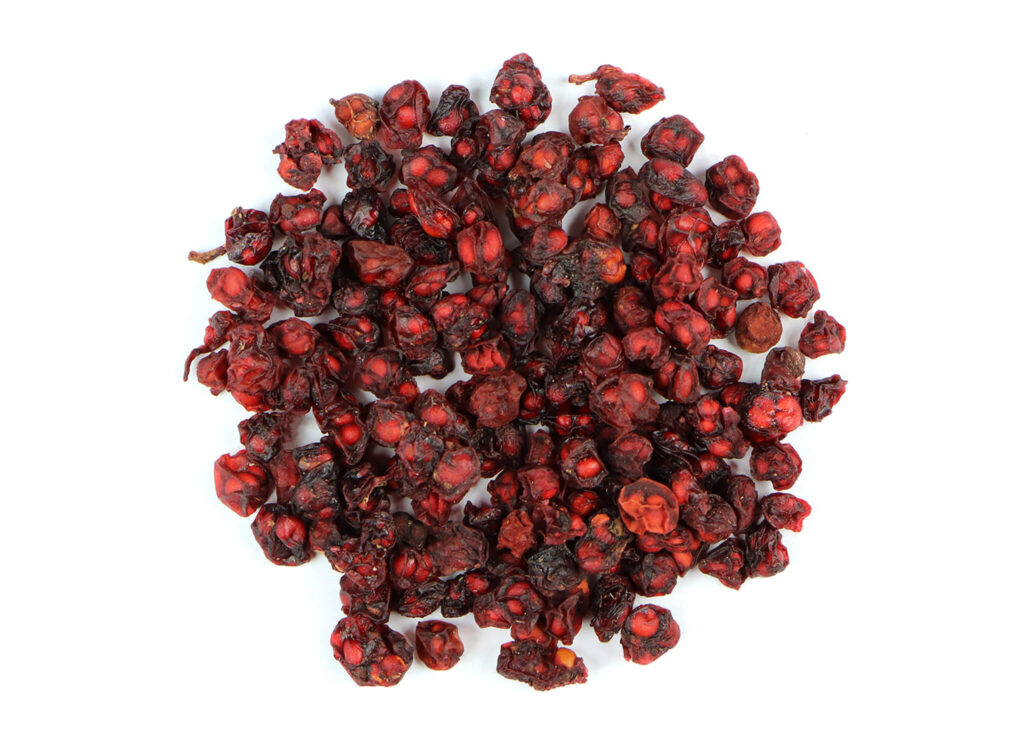
Nutritional Components and Core Ingredients of Schisandra
Schisandra is a plant species that has been used for thousands of years in traditional medicine for its health benefits. Today, modern research has confirmed many of the health benefits that have been attributed to Schisandra for centuries, making it a popular ingredient in health and wellness products. The health benefits of Schisandra are due to the various nutritional components and core ingredients found in the plant.
Lignans
Lignans are a type of plant compound that is found in high concentrations in Schisandra. These compounds are known for their antioxidant properties, which help protect cells from damage caused by harmful molecules called free radicals. Lignans also have anti-inflammatory properties, which can help reduce the risk of chronic diseases such as cancer and heart disease.
Schisandrins
Schisandrins are a group of compounds found in Schisandra that are believed to be responsible for many of the plant’s health benefits. These compounds have been shown to have a protective effect on the liver, helping to prevent damage from toxic substances and improve liver function. Schisandrins are also thought to have a positive impact on cognitive function, reducing stress and anxiety, and improving sleep quality.
Vitamins and Minerals
Schisandra is also a good source of vitamins and minerals, including vitamins C and E, iron, and potassium. These nutrients play an important role in maintaining good health, including supporting a strong immune system, maintaining healthy skin and hair, and supporting heart health.
Antioxidants
In addition to lignans and schisandrins, Schisandra is also rich in antioxidants. Antioxidants are compounds that help protect cells from damage caused by free radicals, and are important for preventing the onset of chronic diseases such as cancer, heart disease, and Alzheimer’s. By providing a source of antioxidants, Schisandra can help support overall health and wellness.
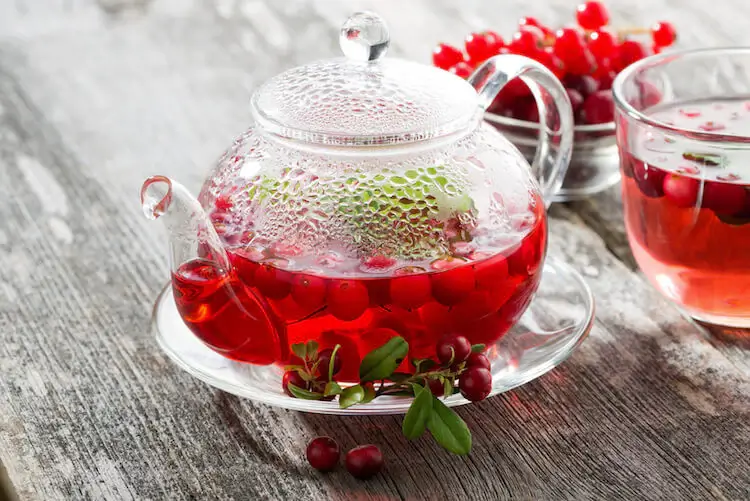
Methods for Consuming Schisandra
Schisandra is a plant species that has been used for thousands of years in traditional medicine for its health benefits. Today, Schisandra is widely available in various forms, making it easy to incorporate into your health and wellness routine. Here are some of the most popular methods for consuming Schisandra:
Schisandra Supplements
Schisandra supplements are one of the most popular forms of Schisandra available today. These supplements come in various forms, including capsules, tablets, and powders. They are a convenient and easy way to get the health benefits of Schisandra, as they provide a concentrated dose of the plant’s active ingredients in a single serving. When choosing a Schisandra supplement, it’s important to look for products that are manufactured to high standards and that are free from contaminants.
Schisandra Tea
Schisandra tea is another popular form of Schisandra. This tea is made by steeping dried Schisandra berries in hot water. Schisandra tea is a delicious and easy way to incorporate the health benefits of Schisandra into your daily routine. It has a slightly tart flavor that is well-suited to a variety of different taste preferences. Schisandra tea is also a good option for those who prefer not to take supplements or who prefer to consume their nutrients in a more natural form.
Schisandra Extracts
Schisandra extracts are another popular form of Schisandra. These extracts are made by extracting the active ingredients from Schisandra berries and are available in liquid or powder form. Schisandra extracts are a more potent form of Schisandra and are typically used to provide a higher dose of the plant’s active ingredients. They are often used in health and wellness products, such as energy drinks, tonics, and supplements.
Schisandra Berries
Schisandra berries are the whole, dried fruit of the Schisandra plant. These berries can be consumed as a snack, used in cooking, or added to smoothies and other beverages. Schisandra berries are a good option for those who prefer to consume their nutrients in a more natural form, as they provide a source of vitamins, minerals, and other beneficial compounds that are found in the plant.
Schisandra Essential Oil
Schisandra essential oil is another form of Schisandra that is becoming increasingly popular. This oil is made by steam distilling the dried Schisandra berries to extract their essential oils. Schisandra essential oil is used in aromatherapy and is believed to have a variety of health benefits, including reducing stress and anxiety, improving sleep quality, and boosting cognitive function.
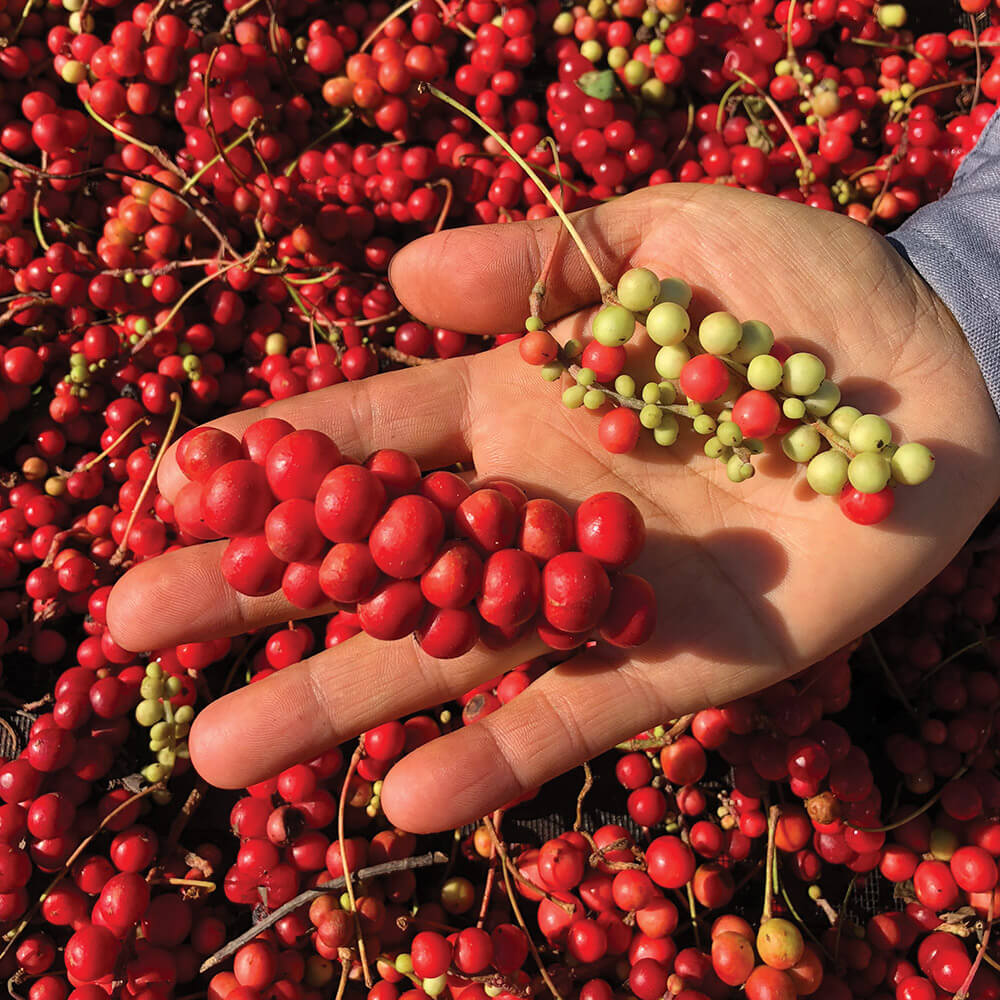
Potential Side Effects and When to Avoid Taking Schisandra
Schisandra is a plant species that has been used for thousands of years in traditional medicine for its health benefits. While Schisandra is generally considered safe, there are some potential side effects and situations in which it is best to avoid taking Schisandra. In this article, we will examine the potential side effects of Schisandra and when it is best to avoid taking this supplement.
Potential Side Effects
Like all supplements, Schisandra can cause some side effects, especially when taken in high doses or for a prolonged period of time. Some of the most common side effects of Schisandra include:
- Stomach upset: Some people may experience stomach upset, such as nausea, vomiting, or diarrhea, when taking Schisandra.
- Headaches: Schisandra can cause headaches in some people, especially when taken in high doses.
- Skin irritation: Schisandra essential oil can cause skin irritation in some people, especially those with sensitive skin.
- Allergic reactions: Some people may experience an allergic reaction to Schisandra, especially those who are allergic to other plants in the Magnoliaceae family.
It is important to note that these side effects are rare and typically only occur when Schisandra is taken in high doses or for a prolonged period of time. If you experience any side effects while taking Schisandra, it is best to discontinue use and consult a healthcare professional.
When to Avoid Taking Schisandra
There are several situations in which it is best to avoid taking Schisandra, including:
- Pregnancy and breastfeeding: Schisandra has not been studied in pregnant or breastfeeding women and its safety in these populations is not known. As a result, it is best to avoid taking Schisandra during pregnancy and breastfeeding.
- Children: Schisandra has not been studied in children and its safety in this population is not known. As a result, it is best to avoid giving Schisandra to children.
- Medications: Schisandra can interact with some medications, including blood-thinning medications and medications used to treat diabetes. If you are taking any medications, it is best to consult a healthcare professional before taking Schisandra.
- Health conditions: Schisandra can interact with some health conditions, including liver disease and high blood pressure. If you have a health condition, it is best to consult a healthcare professional before taking Schisandra.
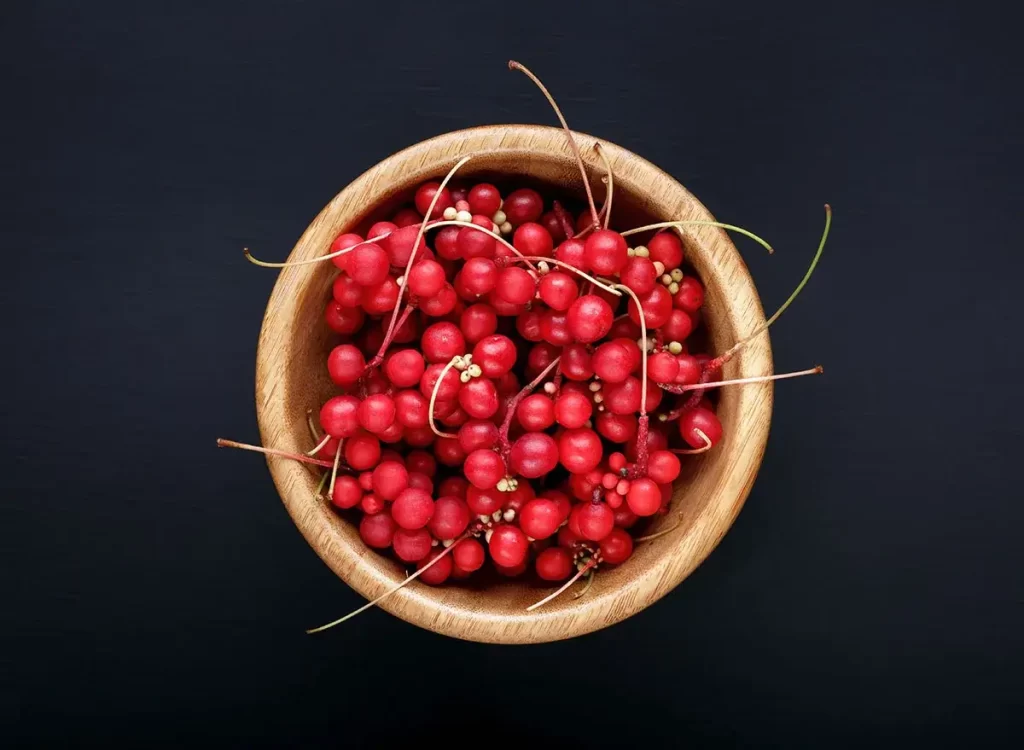
The Drug Interactions of Schisandra
Schisandra is a plant species that has been used for thousands of years in traditional medicine for its health benefits. However, like all supplements, Schisandra can interact with certain medications and affect the way they work. In this section, we will examine the drug interactions of Schisandra.
Schisandra can interact with blood-thinning medications, such as warfarin, and increase the risk of bleeding. Schisandra can also interact with medications used to treat diabetes, such as insulin and oral hypoglycemic drugs, and increase or decrease blood sugar levels.
Additionally, Schisandra can interact with liver medications, such as acetaminophen and aminotransferase inhibitors, and increase the risk of liver damage.
If you are taking any medications, it is important to consult a healthcare professional before taking Schisandra to determine if there are any potential drug interactions. A healthcare professional can help determine the best course of action to minimize the risk of drug interactions and ensure the safe use of Schisandra.
